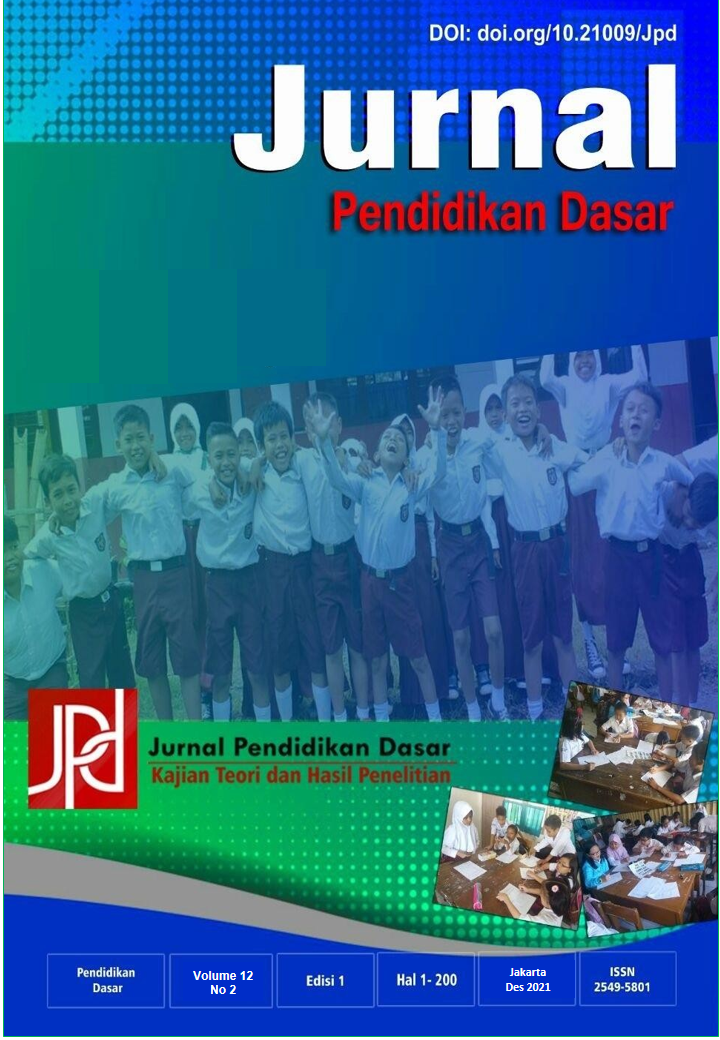ANALISIS KUALITAS PENGAJARAN GURU SEKOLAH DASAR BERDASARKAN PERSPEKTIF SISWA DALAM STUDI KASUS SD KRISTEN MAKEDONIA NGABANG
Keywords:
Teacher quality, evaluation, student perspective, indicators, questionnaireAbstract
The formal learning process is a process that involves many factors in determining the best results from that process. The quality of learning is a determining factor of the optimal teaching and learning process so it needs to be considered by all teachers. This study aims to explore the quality of learning for elementary school teachers in Makedonia Christian Elementary School based on the results of the student perceptions. Sample from 34 students at Makedonia Christian Elementary School completed the survey using a questionnaire. This perspective is covered by 5 indicators, namely Class Climate, Class Management, Learning Instructions, learning challenges, and learning objectives. The students' perspective is an efficient way to evaluate their teachers because their views are based on the experiences they get when interacting with objects every day. In addition, by conducting regular evaluations, the quality of learning will also be maintained according to needs and developments. The findings of this study indicate that the quality of learning in Makedonia Christian Elementary School has been running very well (mean = 88.13).
References
Bavi, F. (2018). The Effect of Using Fun Activities on Learning Vocabulary at the Elementary Level. Journal of Language Teaching and Research, Vol. 9, No. 3, pp. 629-639, May 2018 DOI: http://dx.doi.org/10.17507/jltr.0903.24
Fauth, B., Decristan, J., Rieser, S., Klieme, E., & Büttner, G. (2014). Student ratings of teaching quality in primary school: Dimensions and prediction of student outcomes. Journal Learning and Instruction, 29, 1–9. http://doi:10.1016/j.learninstruc.2013.07.001
Gaertner, H. (2014). Effects of student feedback as a method of self-evaluating the quality of teaching. Journal Studies in Educational Evaluation, 42, 91–99. http://dx.doi.org/10.1016/j.stueduc.2014.04.003
Haryati, Titik dan Noor Rochman. 2012. Peningkatan Kualitas Pembelajaran Pendidikan Kewarganegaraan Melalui Praktik Belajar Kewarganegaraan (Project Citizen). Jurnal Ilmiah CIVIS Vol. II No. 2, Juli.
Hill, H. C., Charalambous, C. Y., & Kraft, M. A. (2012). When rater reliability is not enough: Teacher observation systems and a case for the generalizability study. Educational Researcher, 41(2), 56– 64. http://doi:10.3102/0013189X12437203
Kasandra Alansa Scott, Chris Cale, Sunddip Panesar-Aguilar, Michelle McCraney (2021). Differentiated Instruction and Improving Student Learning: A Qualitative Study. Education Journal. Vol. 10, No. 4, 2021, pp. 114-118. http://doi:10.11648/j.edu.20211004.11
Keuning, T., & Van Geel, M. (2016). Implementation and effects of a schoolwide data-based decision making intervention: A large-scale study. Enschede: University of Twente.
Kitsantas, A., Steen, S., & Huie, F. (2017). The role of self-regulated strategies and goal orientation in predicting achievement of elementary school children. International Electronic Journal of Elementary Education, 2(1), 65–81. Retrieved from https://iejee.com/index.php/IEJEE/article/view/258.
Linda Darling-Hammond, Lisa Flook, Channa Cook-Harvey, Brigid Barron & David Osher (2020) Implications for educational practice of the science of learning and development, Applied Developmental Science, 24:2, 97-140, http://DOI:10.1080/10888691.2018.1537791
Louis Langdon Warren (2021). The Importance of Teacher Leadership Skills in the Classroom. Education Journal. Vol. 10, No. 1, 2021, pp. 8-15. http://doi:10.11648/j.edu.20211001.12
Priya Vijayan, Srikumar Chakravarthi, and John Arul Philips (2016). The Role of Teachers’ Behaviour and Strategies in Managing a Classroom Environment. International Journal of Social Science and Humanity, Vol. 6, No. 3, March 2016. http://DOI:10.7763/IJSSH.2016.V6.644
Rosmilawati, I. (2017). Learning through Individuation: How Indonesian Young People Seek a Personal Growth and Self-Development at Alternative Schooling. Journal of Nonformal Education, 3(2), 87-96. https://doi.org/10.15294/jne.v3i2.10943.
Simamora, R. M. (2020). The Challenges of Online Learning during the COVID-19 Pandemic: An Essay Analysis of Performing Arts Education Students. Studies in Learning and Teaching, 1(2), 86-103. https://doi.org/10.46627/silet.v1i2.38.
Van de Grift, W. J. C. M. (2014). Measuring teaching quality in several European countries. School Effectiveness and School Improvement, 25(3), 295–311. http://doi:10.1080/09243453.2013.794845
Van der Lans, R. M., Van de Grift, W. J. C. M., & Van Veen, K. (2015). Developing a teacher evaluation instrument to provide formative feedback using student ratings of teaching acts. Educational Measurement: Issues and Practice, 34(3), 18–27. http://doi:10.1111/emip.12078
Van der Scheer, E. A., Glas, C. A. W., & Visscher, A. J. (2017). Changes in teachers’ instructional skills during an intensive data-based decision making intervention. Teaching and Teacher Education, 65, 171–182. http://doi:10.1016/j.tate.2017.02.018
Wagner, W., Göllner, R., Helmke, A., Trautwein, U., & Lüdtke, O. (2013). Construct validity of student perceptions of instructional quality is high, but not perfect: Dimensionality and generalizability of domain-independent assessments. Learning and Instruction, 28, 1–11. http://doi:10.1016/j.learninstruc.2013.03.003
Downloads
Published
How to Cite
Issue
Section
License
Jurnal Pendidikan Dasar





















